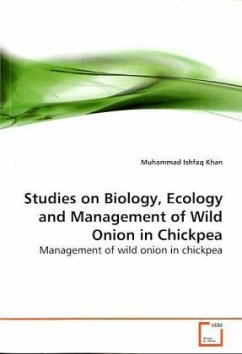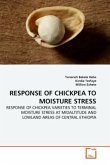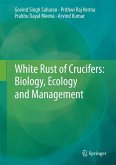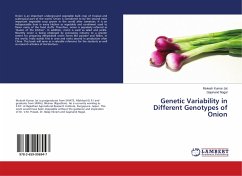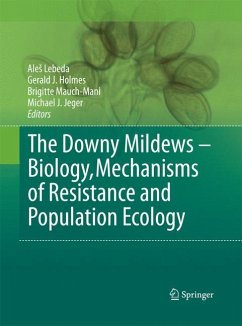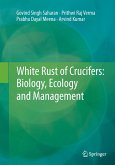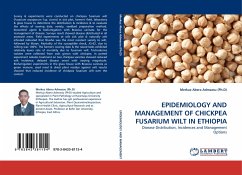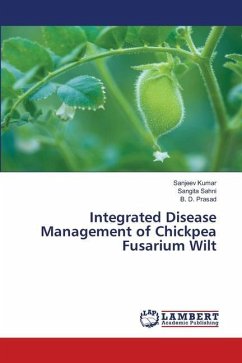The current studies revealed the infestation of wild
onion in North West Frontier Province (NWFP) and
Punjab- Pakistan with average yield losses of 40%
annually. The first experiment under controlled
environment included dormancy breaking by using GA3,
KNO3, Thiourea, and Sodium Azide at 0 to 800 mM
exposed to 10, 20, and 30oC temperature regimes.
600mM was best concentration of KNO3 and promote
seed germination while sodium azide inhibit seed
germination at all concentrations. In the second
experiment two herbicides, isoproturon and
fenoxaprop-p-ethyl, were evaluated, each having four
doses including an untreated check in pots under
controoled environment. Herbicides reduce the dry
biomass significantly. The third experiment under
controlled environment included chickpea germplasm
including 12 chickpea germplasm with two herbicides
pendimethalin and fenoxaprop-p-ethyl. KC-98 and KK-1
found tolerant to herbicides.In the field experiment
herbicides and herbicides doses were tested. pre
emergence herbicides with 1.5X dose found effective
with a signinificant increase of chickpea grain
yield .
onion in North West Frontier Province (NWFP) and
Punjab- Pakistan with average yield losses of 40%
annually. The first experiment under controlled
environment included dormancy breaking by using GA3,
KNO3, Thiourea, and Sodium Azide at 0 to 800 mM
exposed to 10, 20, and 30oC temperature regimes.
600mM was best concentration of KNO3 and promote
seed germination while sodium azide inhibit seed
germination at all concentrations. In the second
experiment two herbicides, isoproturon and
fenoxaprop-p-ethyl, were evaluated, each having four
doses including an untreated check in pots under
controoled environment. Herbicides reduce the dry
biomass significantly. The third experiment under
controlled environment included chickpea germplasm
including 12 chickpea germplasm with two herbicides
pendimethalin and fenoxaprop-p-ethyl. KC-98 and KK-1
found tolerant to herbicides.In the field experiment
herbicides and herbicides doses were tested. pre
emergence herbicides with 1.5X dose found effective
with a signinificant increase of chickpea grain
yield .

